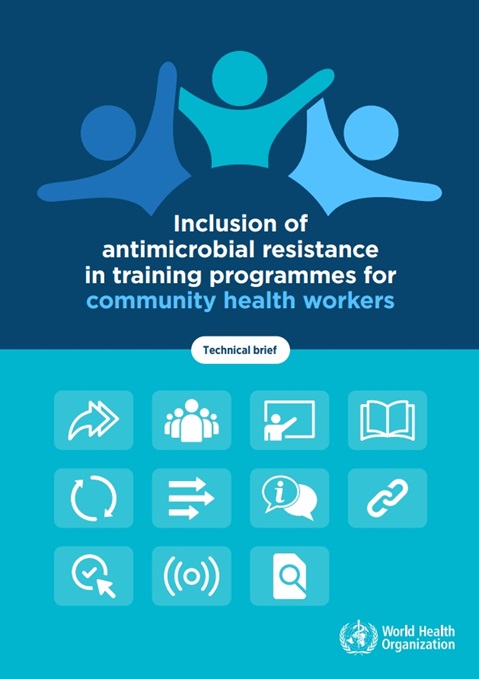Inclusion of antimicrobial resistance in training programmes for community health workers: Technical Brief

Overview
The WHO People-centred approach to addressing antimicrobial resistance (AMR) in human health calls for mainstreaming AMR-related interventions into health systems’ strengthening and particularly into primary health care. It recommends the engagement of various community stakeholders and ensuring a competent, committed, multidisciplinary primary health care workforce that includes community health workers (CHWs). The political declaration of the United Nations General Assembly High-level Meeting on AMR in 2024 declares a commitment to a whole-of-society approach and social participation in tackling AMR, in which health workers and care workers are identified as relevant stakeholders. CHWs are a key means to expansion of the community base and of ownership of AMR interventions and action plans.
This technical brief underscores the critical role of CHWs in combatting AMR through community engagement, education, promotion of best practices in infection prevention and control, water, sanitation and hygiene, and appropriate antimicrobial use. The brief highlights the multifaceted dimensions of AMR in community settings and provides strategic recommendations for optimizing the contribution of CHWs. It also suggests curricular elements in training CHWs in AMR. It outlines specific AMR-related tasks expected from CHWs, emphasizing the importance of tailored training and supportive supervision.
Integration of AMR into CHW training programmes will increase the capacity of these frontline health workers to address the threat of AMR effectively and contribute to strengthening health systems and promoting health equity worldwide.
